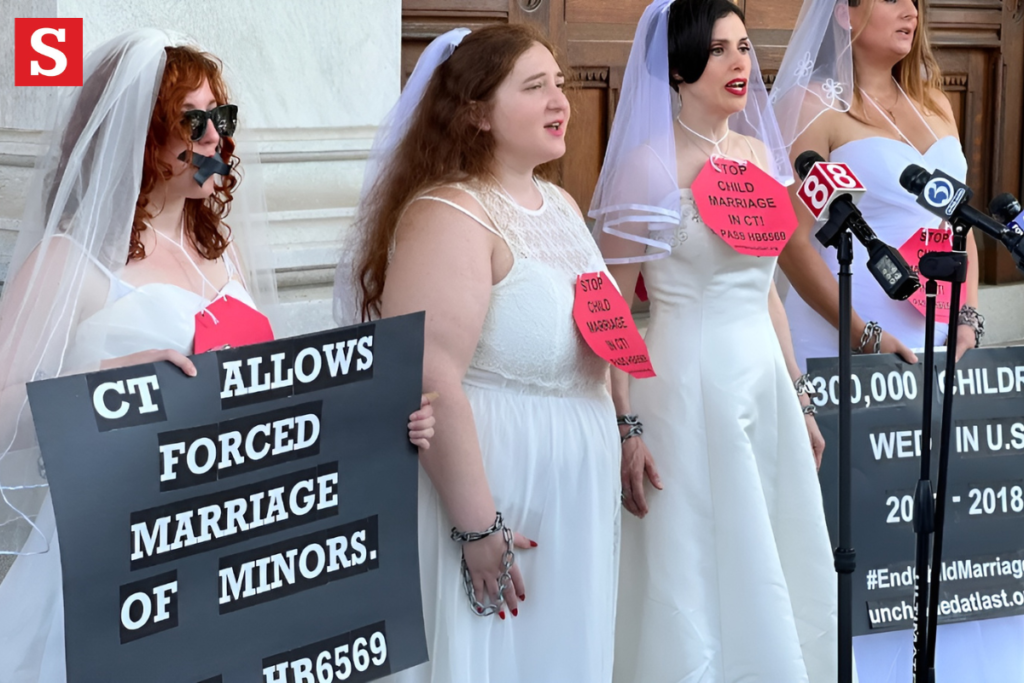Child marriage, defined as a legal or informal union where one or both parties are under the age of 18, remains a significant concern in New Hampshire. Despite being a progressive state in many respects, New Hampshire’s laws on child marriage have lagged behind, allowing loopholes that continue to jeopardize the well-being of minors.
The Legal Landscape of Child Marriage in New Hampshire
For years, New Hampshire’s laws permitted minors as young as 13 (for girls) and 14 (for boys) to marry with parental and judicial consent. This made it one of the few states in the U.S. with such permissive child marriage laws. While there have been legislative efforts to raise the minimum age, systemic challenges and cultural attitudes have delayed progress.
In 2023, New Hampshire finally took a significant step forward by enacting a law that prohibits marriage under the age of 18 without exceptions. This legislative milestone was the result of years of advocacy by organizations like Unchained At Last, a nonprofit dedicated to ending child marriage in the United States.
The Human Impact of Child Marriage
Child marriage is not just a legal issue; it’s a human rights violation with far-reaching consequences for those involved. Research shows that minors who marry are at a higher risk of experiencing domestic violence, poverty, and limited educational opportunities. These impacts are particularly pronounced for girls, who often face societal pressures that perpetuate cycles of inequality.
Education and Economic Consequences
When children marry, their education often comes to a halt. This limits their career prospects and economic independence, trapping many in cycles of poverty. Girls, in particular, are disproportionately affected, as they are often expected to prioritize family responsibilities over personal development.
Health and Safety Risks
Child marriage also poses significant health risks. Young girls are more likely to experience complications during pregnancy and childbirth, which are the leading causes of death for girls aged 15-19 globally. Furthermore, minors in these unions are at increased risk of domestic violence and abuse.
Advocacy and the Road to Change
The journey to ending child marriage in New Hampshire has been driven by relentless advocacy from individuals, organizations, and even youth groups. A shining example is the work of Girl Scouts who have taken action to raise awareness about child marriage. As highlighted by the Girl Scouts organization, young activists have played a critical role in pushing for legislative reform.
The Role of Judicial and Parental Consent
One of the most controversial aspects of child marriage laws has been the role of parental and judicial consent. While proponents argue that these provisions allow for exceptional circumstances, critics point out that they are often exploited, putting minors at risk of coerced or forced marriages.
New Legislation: A Victory for Minors
The recent legislative changes in New Hampshire mark a turning point. By eliminating exceptions for parental and judicial consent, the state has closed loopholes that previously enabled child marriage. This aligns New Hampshire with a growing national trend to set 18 as the minimum marriage age without exceptions, following in the footsteps of states like Delaware and New Jersey.
Challenges Ahead
While the new law is a significant victory, challenges remain. Advocacy groups continue to emphasize the importance of enforcing these laws and addressing the cultural attitudes that perpetuate child marriage. Public awareness campaigns and educational initiatives are essential to ensuring lasting change.
The Broader Context of Child Marriage in the U.S.
Child marriage is not unique to New Hampshire; it is a nationwide issue. According to statistics, nearly 300,000 minors were married in the U.S. between 2000 and 2018. Advocacy groups like Unchained At Last have been instrumental in bringing attention to this issue, working tirelessly to change laws and support survivors.
How You Can Help
Ending child marriage requires collective action. Here are some ways you can contribute:
- Educate Yourself and Others: Share information about the impacts of child marriage and the importance of recent legislative changes.
- Support Advocacy Groups: Organizations like Unchained At Last rely on public support to continue their work.
- Engage in Policy Advocacy: Contact your local representatives to express your support for laws that protect minors from forced or early marriages.
Conclusion
The fight to end child marriage in New Hampshire is a testament to the power of advocacy and the importance of protecting minors’ rights. While recent legislative changes are a cause for celebration, the journey is far from over. Continued efforts are needed to address the root causes of child marriage and ensure a brighter future for all children. By staying informed and supporting advocacy efforts, we can all play a role in ending this harmful practice.




